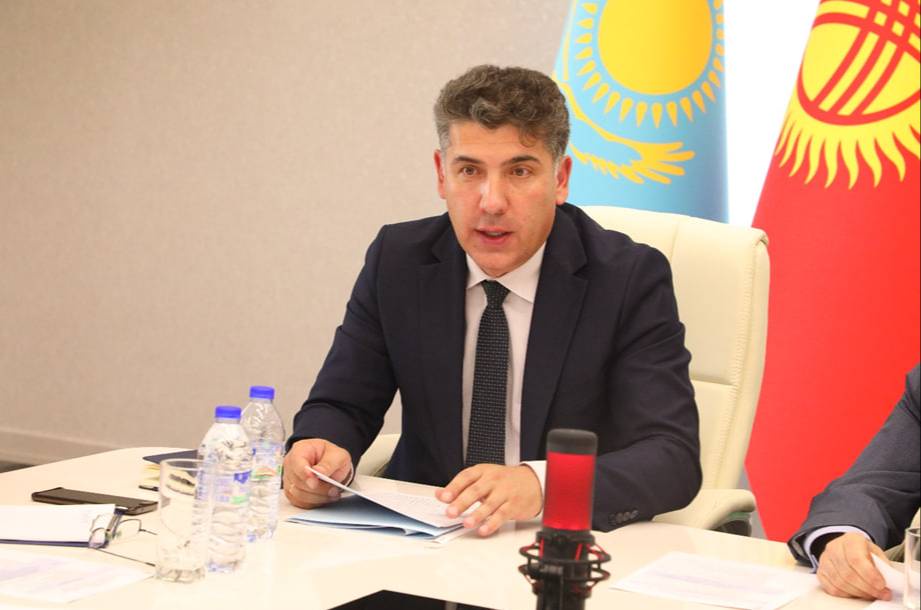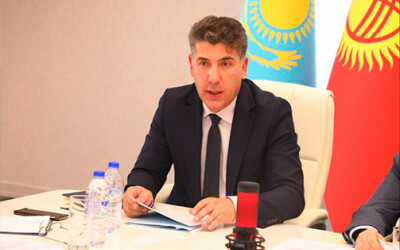ISRS: Central Asia should remain the core of the SCO

On June 14 this year, Tashkent hosted a roundtable on "The Samarkand Process: Prospects for SCO Modernization.
Speaking at the opening session, First Deputy Director of the ISRS under the President of the Republic of Uzbekistan Akramjon Nematov emphasized a number of key conditions contributing to the growing potential and international authority of the SCO, its increasing role in ensuring security, stability and sustainable development in the vast Eurasian area.
First, as Akramjon Nematov pointed out, Central Asia is and must remain the core of the SCO, an important interconnecting link between all SCO member states, a kind of a cross-link, an integrator. Central Asia's stability is an important factor of interconnectedness, and its security is a key condition for transregional sustainable development. Consequently, the processes taking place here should continue to remain at the center of attention of the Organization, even as its membership and geography expand.
Secondly, the expert stressed that an important factor contributing to the SCO's prosperity is the strict adherence to the fundamental principles of mutual trust, mutual benefit, equality, mutual consultation, respect for the diversity of cultures and the pursuit of joint development.
In other words, he noted, the SCO is based on dialogue and mutual trust, while its decision-making process, while somewhat complex, remains inclusive and based on compromise.
This ensures that the interests of all SCO member states are taken into account in decision-making.
"The above circumstances have made the SCO an open association, ready to interact with different countries and international organizations," the ISRS representative said.
Thirdly, Akramjon Nematov is convinced that the SCO's international legal attractiveness lies in its non-aligned status, openness, non-targeting against third countries or international organizations, equal rights and respect for the sovereignty of all participants, non-interference in domestic affairs, and the prevention of political confrontation and confrontational competition.
Throughout its existence, the SCO has been firmly committed to these principles and has not dissipated resources for confrontation. On the contrary, member states have concentrated their efforts on solving problems of internal development, on which the security and stability in the space of our Organization directly depended.
Moreover, as the expert noted, the most recent SCO summit in Samarkand once again reaffirmed these principles. The decisions adopted at the summit contained answers to many of the current challenges facing the international community today.
"They have set really new "strategic benchmarks", acting as important "vectors" of the SCO development for decades to come in areas such as transport interconnection, digitalization, industrial cooperation, food and environmental security," he explained.
"These are very popular and practically important areas of cooperation, especially in the new global realities, when we are witnessing the emergence of serious challenges to sustainable development," - concluded Akramjon Nematov.
For information: The International roundtable was organized by the Ministry of Foreign Affairs of the Republic of Uzbekistan in partnership with the Institute for Strategic and Regional Studies under the President of the Republic of Uzbekistan and with the assistance of the International Institute for Central Asia. Leaders and experts from leading think tanks of the SCO member states took part in it.
Previous

A roundtable on "Samarkand Process: SCO Modernization Prospects" was held in Tashkent today. Speaking at the event, First Deputy Director of the ISRS under the President of the Republic of Uzbekistan Akramjon Nematov outlined priority directions in the context of reforming the SCO activities.
14.06.2023





